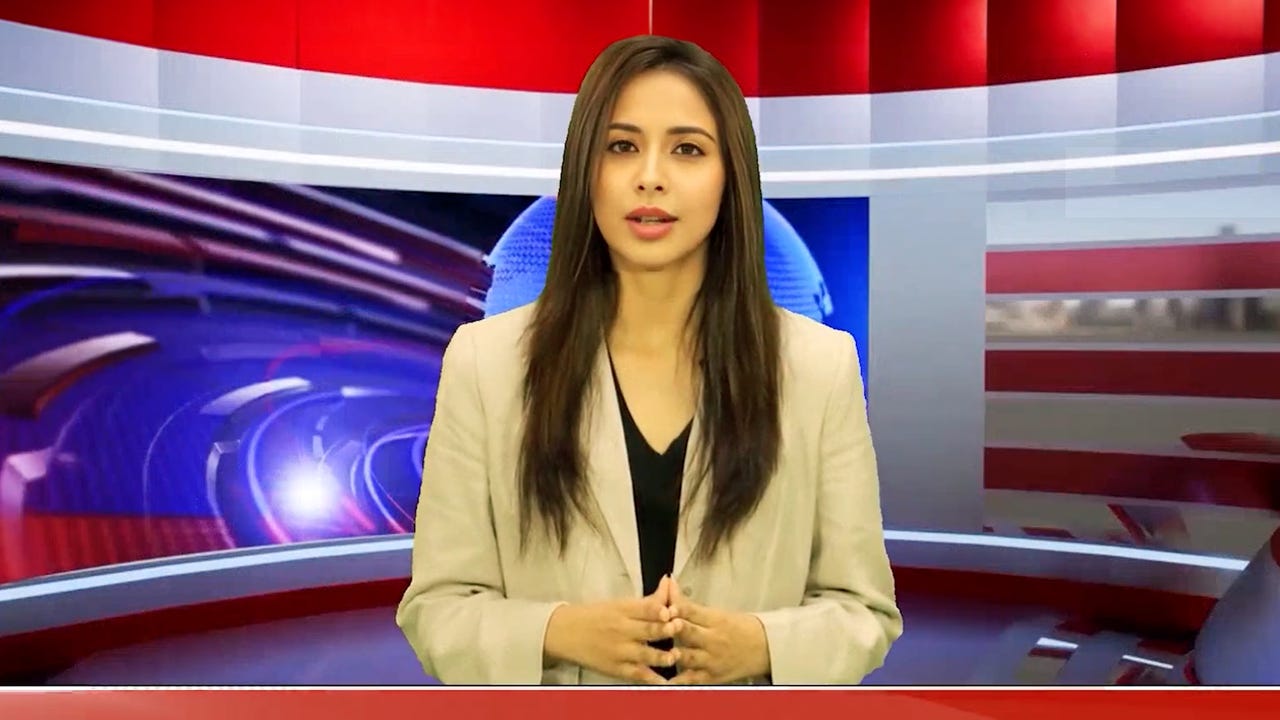
Meet ‘ Lisa’, an AI-generated news anchor for OTV News in India. Screenshot by Maria Diaz/ZDNET
Roll over, Walter Cronkite.
The TV news anchor is a time-tested tradition for providing some degree of comfort to the business of delivering our daily dose of headlines. We wake up each day to a familiar morning news anchor and go to bed each night with the evening news delivered by another familiar face. But as AI threatens to take over many of today’s jobs, how safe is the news reader’s position? One network in India is trying to answer that.
Odisha TV, a news channel and digital platform from India, recently tested out Lisa, an AI-generated news anchor. With a monotone voice and eyes that don’t quite close when they blink, Lisa reads the news headlines for the network periodically, and she’s not alone.
Also: Bing AI chat expands to Chrome and Safari for select users
According to the South China Morning Post, Lisa is one of two multilingual chatbots that have been added to news networks in India in the past three months. Sana, the other AI-generated news anchor, ‘works’ for the network Aaj Tak, owned by the India Today group.
AI-generated news anchor Sana reads the headlines for Aaj Tak. Screenshot by Maria Diaz/ZDNET
Though the developers employ some subtleties to make the anchors appear more human, the result tends to trigger uncanny valley reactions. Sana often shifts from one foot to the other, and Lisa folds her hands and rearranges her fingers uncomfortably — actions that — on their own — would feel “normal” in a human being. Still, the repetitiveness of the AI bots’ movements, combined with their monotone voices and unnatural facial expressions, creates the eerie feeling that you’re watching something unnatural.
But Lisa and Sana are always available, never sick or tired, don’t go on strike or PTO, and won’t age. Still, India Today and Odisha TV claim that they have not added these AI chatbots to replace their human counterparts but rather to complement them by taking over repetitive and mundane tasks.
Also: You can now chat with a famous AI character on Viber. Here’s how
Currently, Sana and Lisa are tasked with reading the headlines during a broadcast or news program and handing them over to a human presenter. Sana, however, is being trained to conduct debates with human and AI panelists.
Reception of the AI-generated news anchors has been mixed. Supporters encourage the networks’ embrace of new technologies, the ability to provide news faster during elections and other critical times, and the language diversity. In contrast, naysayers oppose artificial intelligence replacing people and the lack of human nuances.
Also: Singapore looks for generative AI use cases with sandbox options
Here’s another ethical conundrum: The racial and sexist discrimination that can result when human beings create AI bots in their own image. As network executives decide every physical aspect of an anchor’s appearance, there’s a real possibility for the arbitrary exclusion of different ethnic groups or physical features.
Artificial Intelligence




















